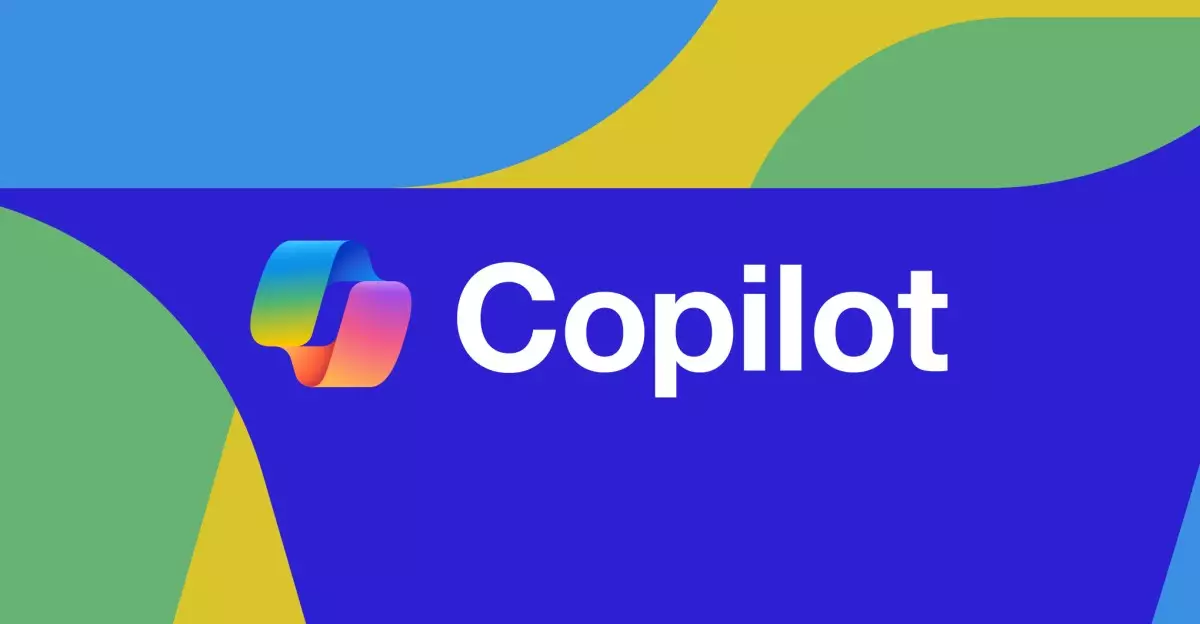In an adaptive twist that underlines the increasing significance of artificial intelligence in daily life, Microsoft is presenting a refreshed version of its AI assistant, Copilot, in celebration of its 50th anniversary. With an impressive array of features that enhance personalization and interactivity, Microsoft is not just playing catch-up; it’s redefining the boundaries of AI. The integration of-memory capabilities stands out as a significant enhancement. This allows Copilot to not only remember users’ preferences but also engage in a dialogue that feels markedly more intimate. It can note essential details—ranging from birthdays to your favorite hobbies—transforming mere assistance into a tailored experience.
Users will have the power to dictate what the AI retains, which strikes a delicate balance between convenience and privacy. This autonomy is something that users today seek fiercely amid growing concerns about data exploitation. The option to completely opt-out of memory retention empowers individuals, allowing them to reap the rewards of AI without the potential anxiety of being ‘watched’ or misjudged.
The Multi-Functional AI Assistant
Beyond simple responses, the updated Copilot will have exhaustive web-based functionalities, placing it on par with leading alternatives like ChatGPT. The new Actions feature is particularly revolutionary; it expands Copilot’s capabilities from mere text processing to executing intricate tasks. Users can now have Copilot book tickets, reserve tables at restaurants, or even research products—all carried out with a few voice commands or simple prompts. The seamless integration with e-commerce will revolutionize how consumers interact with technology, as Copilot can scour the internet for discounts and special offers while managing user preferences.
Imagine a dinner out with friends, where you need not juggle apps or web browsers; instead, you can command Copilot to handle reservations while you focus on enjoying the moment. This feature isn’t just a convenience; it’s a lifestyle enhancement that can change how we perceive time management.
Visual Interactions: The Copilot Vision
The Copilot Vision feature will expand the horizons of user interaction. This function enables the AI to “see” the screen and analyze what content is displayed across various applications. Taking a step further, it enables interaction through the user’s camera, allowing the AI companion to respond to queries based on pictures or real-world scenes. Such a capability could inject a fresh layer of interactivity, boasting transformative potential for everything from education to creative projects.
Moreover, this advancement can enhance accessibility by providing real-time guides or support for individuals with disabilities, ensuring that digital environments become inclusive. For instance, a visually impaired user could point their device at various objects and receive spoken descriptions or suggestions, showcasing technology’s humanitarian side.
Advanced Research Capabilities for a New Intelligence Era
Moreover, consumers and professionals alike will benefit from Copilot’s deep research functionality. The ability to analyze complex data sets or extensive documents can be an invaluable asset in academic and professional settings. Coupling these research capabilities with Bing’s AI-driven responses will streamline workflows for users tackling ambitious projects, saving time that could otherwise be spent on tedious information gathering.
Additionally, the capacity to convert research findings into podcast-style audio can foster more engaging ways to digest information. The auditory format can act as an immersive alternative to traditional note-taking, catering to users who might prefer learning through listening. This approach not only enhances accessibility but also promotes a multi-sensory approach to information retention.
The Future of Personal AI Experiences
As part of a broader ambition to create an AI that resonates with individual users, Microsoft is steering Copilot towards a uniquely personalized experience. The notion that “Copilot is more than an AI; it’s yours” resonates strongly in a marketplace increasingly dominated by generic software solutions. By prioritizing user experiences, Microsoft aims to cultivate not just a helpful assistant but a digital companion that feels intimately tuned to individual quirks and life rhythms.
Although early in this evolution, the promise of customizable appearances suggests a future where users can express their own identities through their AI. The ability to envision a Copilot that reflects one’s personality—perhaps through visual themes or tones of voice—creates a compelling narrative that speaks to human creativity and connection in the digital age.
This transformative push represents more than just technological advancement; it embodies a cultural shift towards embracing AI as an integral part of everyday life. An intelligent companion that learns and grows with you could well be the promising future that we have been waiting for. Microsoft’s bold steps with Copilot are setting a new standard, one that can potentially redefine our interactions with technology itself.

